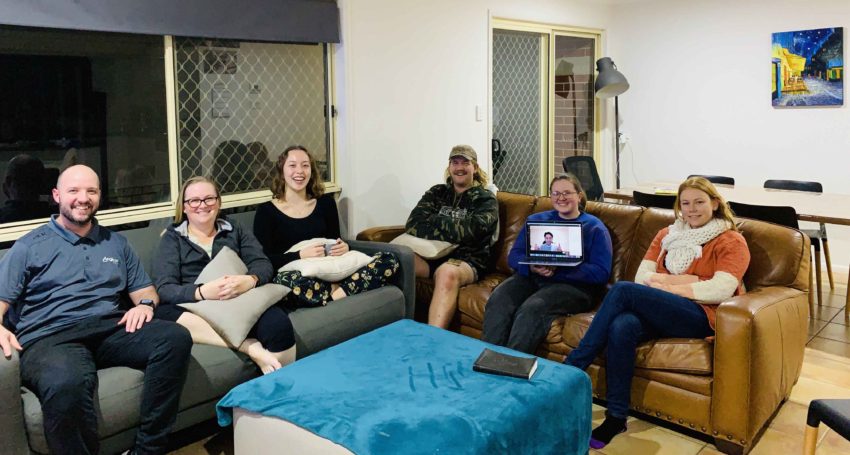How does a church run an effective young adults’ group?
Features
“While creating engaging spaces and experiences is necessary for running young adults’ groups, the trap here is being unaware of the actual needs of young adults, including things like genuine connection, people who care for them and demonstrate authenticity, open conversation and navigating barriers to faith,” says Dale Lennon from Resource Church The Parish of Robina

Seems like a strange question really, doesn’t it? Don’t you run a young adults’ group exactly the same as you do any other group? Well, in some ways yes. But in reality, the way we prepare to minister to given age demographics, regardless if they are children, teenagers, young adults, individuals, families or retired, is crucial. I’m reminded that in order to faithfully serve we need to prepare and be aware of the needs of our parishioners wherever they are in life’s journey.
Advertisement
The words of the apostle Paul seem especially prevalent when he says that, “I have become all things to all people, that I might by all means save some” (1 Corinthians 9.22b). It’s important to note that Paul is talking about methodology here, not message. In serving young adults in our parishes with a methodology that is suited to them, we are far more likely to see positive results and engagement.
I am not suggesting that effective ministry relies on some sort of precise formula or that we can make fruitful ministry in our own strength. But, I am saying that faithful preparations and awareness of the needs of young adults are crucial to building a vibrant young adult community. So, what are the needs of young adults? What are they looking for? Do our faith communities offer what they are looking for? If not, what needs to change?
These are potentially confronting questions. That is because if we are honest, we realise that perhaps our practices are not suited to serve the needs of specific groups of people. Once again this is about methodology not message. It should be said that we will never please everyone’s preference regarding methodology, but we must endeavour to love and serve all people as faithfully as we can.
Our initial response might be to think of making physical changes like a space for them to meet, topics or music that engage them and experiences or events that will bring them in. While creating engaging spaces and experiences is necessary for running young adults’ groups, the trap here is being unaware of the actual needs of young adults, including things like genuine connection, people who care for them and demonstrate authenticity, open conversation and navigating barriers to faith.
With all this in mind I would like to offer 10 tips on what I have found useful in young adults’ ministry. By no means are these exhaustive or in any particular order, but I hope they will be of some use.
Top 10 tips for starting and running a young adults’ group
- Start with what you have. Don’t worry about snazzy names or getting everything perfect. Just start.
- Be real, be authentic. Don’t try to be something you’re not. Young adults are not interested in another programme for a programme’s sake.
- Engage in their interests, looking for ways to do social activities together, as well as spiritual activities.
- Don’t work unilaterally, as young adults want to be heard.
- Identify leadership potential. As soon as you have some young adults coming along regularly, identify the natural leaders. Encourage them to take a role in the group and take on some responsibility.
- Make it easy to be involved. Any demands on time or preparation will put people off, so make being involved as easy as possible.
- Be regular. Consistency is the key here. If that is a regular time to meet or do things, then be sure to commit and ensure it happens.
- Follow up. Check in with your young adults throughout the week. This doesn’t have to be in-depth, just something small to keep connected. Small groups help with this.
- Be passionate about your faith. Young adults aren’t looking for a mediocre experience of faith. This doesn’t need to be loud or obnoxious, but it must be genuine.
- Have fun! Enjoy time together, don’t take yourself or your plans too seriously. Things will not always go to plan. In my experience when this happens, I have had my most fruitful moments with young adults’ groups.





